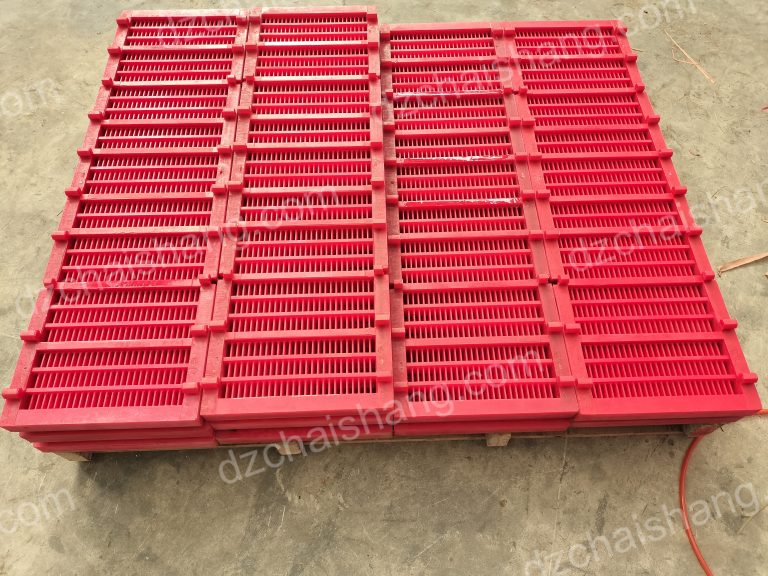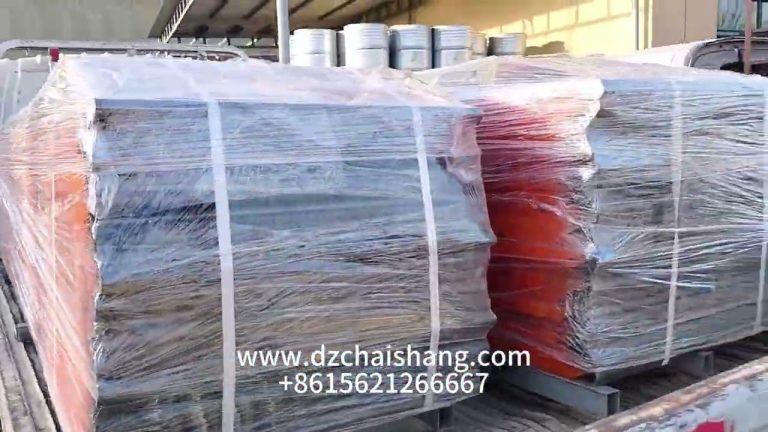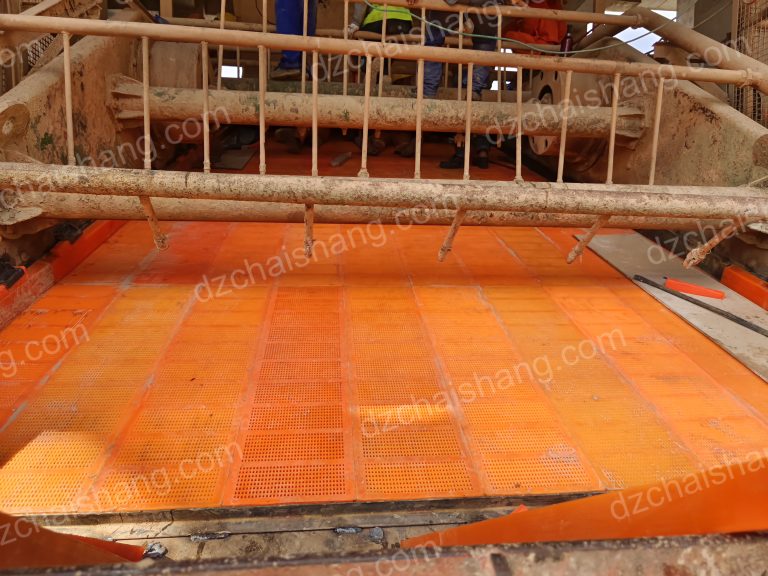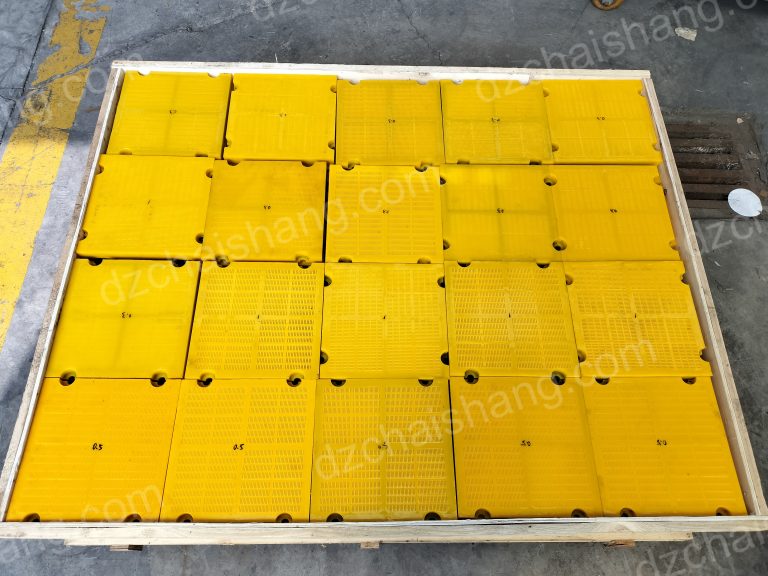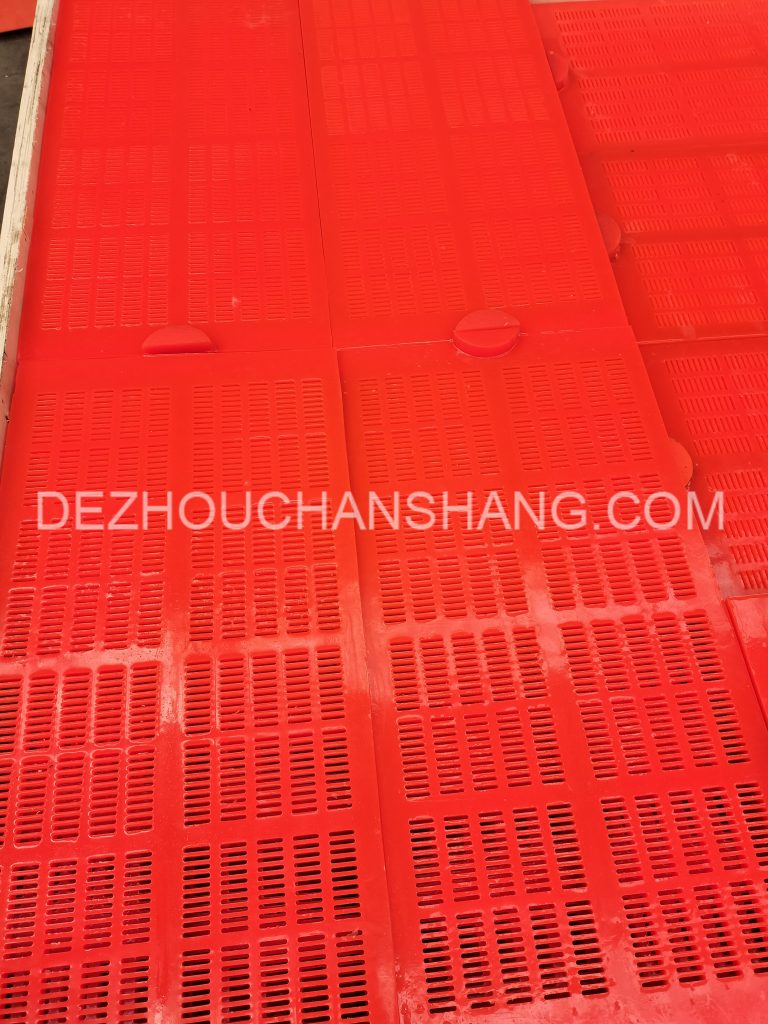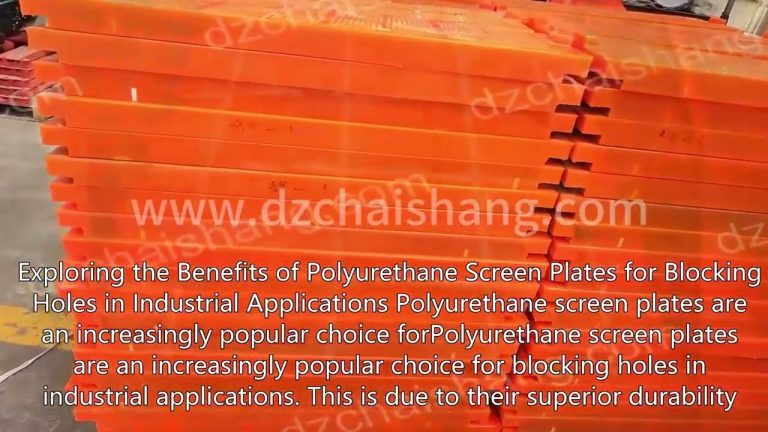vibrating polyurethane screen mesh polyurethane dewatering screen
Understanding the Functionality of Vibrating polyurethane screen mesh The vibrating polyurethane screen mesh, also known as the polyurethane dewatering screen, is a…
Understanding the Functionality of Vibrating polyurethane screen mesh
The vibrating polyurethane screen mesh, also known as the polyurethane dewatering screen, is a significant innovation in the realm of material screening and sorting. This advanced technology has revolutionized various industries, including mining, construction, and recycling, by offering superior performance, durability, and efficiency. The vibrating polyurethane screen mesh is a type of screening equipment that uses polyurethane as the primary material. Polyurethane is a versatile and robust synthetic material that offers excellent resistance to wear, tear, and environmental conditions. This makes it an ideal choice for screening applications where durability and longevity are paramount. The primary function of the vibrating polyurethane screen mesh is to separate and sort different materials based on their size. The screen consists of a series of mesh panels with varying hole sizes. When materials are fed into the screen, they vibrate, causing the smaller particles to fall through the holes while the larger ones remain on top. This process is known as dewatering, and it is crucial in industries such as mining and construction where separating materials based on size is essential. One of the key advantages of the vibrating polyurethane screen mesh is its high efficiency. The screen’s vibration increases the speed and accuracy of the sorting process, allowing for higher throughput and better quality control. Moreover, the polyurethane material‘s durability ensures that the screen can handle heavy loads and abrasive materials without significant wear and tear. This results in lower maintenance costs and longer service life, making the vibrating polyurethane screen mesh a cost-effective solution for material screening and sorting. Another notable feature of the vibrating polyurethane screen mesh is its flexibility. Unlike traditional metal screens, polyurethane screens can be manufactured in a wide range of shapes, sizes, and configurations to suit specific applications. This flexibility allows for more precise control over the screening process, enabling users to achieve optimal results. The vibrating polyurethane screen mesh also offers environmental benefits. The dewatering process reduces the amount of water needed for material processing, which can significantly decrease water consumption in industries like mining and construction. Additionally, the durability of polyurethane screens means less frequent replacement, leading to reduced waste and a smaller environmental footprint. In conclusion, the vibrating polyurethane screen mesh, or polyurethane dewatering screen, is a highly efficient, durable, and flexible solution for material screening and sorting. Its superior performance and cost-effectiveness make it an ideal choice for various industries. Moreover, its environmental benefits contribute to sustainable operations, making it a responsible choice for businesses looking to reduce their environmental impact. As technology continues to advance, we can expect to see even more improvements and innovations in this area, further enhancing the capabilities and benefits of the vibrating polyurethane screen mesh.The Role of Polyurethane Dewatering Screen in Industrial Applications
The role of polyurethane dewatering screens in industrial applications is pivotal, particularly in the mining and aggregate industries. These screens, often referred to as vibrating polyurethane screen mesh, are renowned for their durability, efficiency, and versatility, making them an indispensable tool in various industrial processes.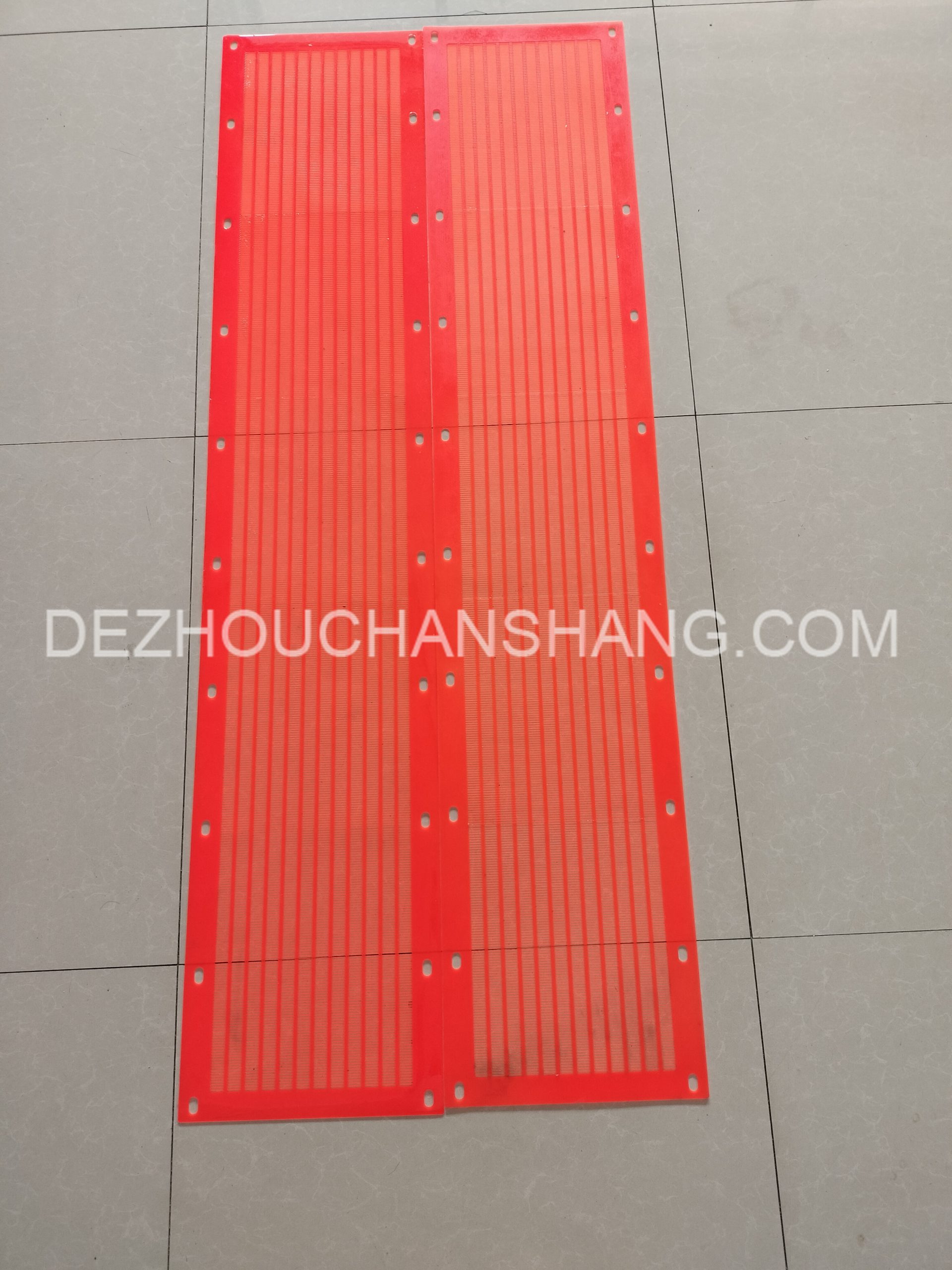 Polyurethane dewatering screens are primarily used to separate materials by size. This is achieved through the use of a vibrating mechanism that shakes the material across the screen. The vibrations cause the smaller particles to fall through the screen’s mesh, while the larger particles remain on top. This process is crucial in industries such as mining, where separating materials by size is a fundamental part of the operation.
One of the key advantages of polyurethane dewatering screens is their durability. Polyurethane is a robust material that can withstand the rigors of heavy industrial use. It is resistant to wear and tear, making it ideal for use in harsh environments where other materials might fail. This durability also translates into cost savings, as the screens require less frequent replacement, reducing downtime and maintenance costs.
In addition to their durability, polyurethane dewatering screens are also highly efficient. The screens’ design allows for a high throughput of material, meaning more material can be processed in a shorter amount of time. This efficiency is further enhanced by the screens’ ability to effectively separate materials of different sizes, reducing the need for additional processing steps.
Versatility is another significant advantage of polyurethane dewatering screens. These screens can be used with a wide range of materials, from sand and gravel to coal and minerals. This versatility makes them a valuable tool in a variety of industrial applications. Furthermore, the screens can be customized to meet specific requirements, such as varying mesh sizes to accommodate different material sizes.
The use of polyurethane in the construction of these screens also offers environmental benefits. Polyurethane is a recyclable material, meaning that when the screen reaches the end of its life, it can be recycled rather than ending up in a landfill. This aligns with the growing trend towards more sustainable industrial practices.
The vibrating mechanism of the polyurethane dewatering screen also plays a crucial role in its effectiveness. The vibrations not only help to separate the materials but also aid in the dewatering process. By shaking the material, water is forced out, leaving behind a drier product. This is particularly useful in industries such as mining, where the extracted material often contains a significant amount of water.
Polyurethane dewatering screens are primarily used to separate materials by size. This is achieved through the use of a vibrating mechanism that shakes the material across the screen. The vibrations cause the smaller particles to fall through the screen’s mesh, while the larger particles remain on top. This process is crucial in industries such as mining, where separating materials by size is a fundamental part of the operation.
One of the key advantages of polyurethane dewatering screens is their durability. Polyurethane is a robust material that can withstand the rigors of heavy industrial use. It is resistant to wear and tear, making it ideal for use in harsh environments where other materials might fail. This durability also translates into cost savings, as the screens require less frequent replacement, reducing downtime and maintenance costs.
In addition to their durability, polyurethane dewatering screens are also highly efficient. The screens’ design allows for a high throughput of material, meaning more material can be processed in a shorter amount of time. This efficiency is further enhanced by the screens’ ability to effectively separate materials of different sizes, reducing the need for additional processing steps.
Versatility is another significant advantage of polyurethane dewatering screens. These screens can be used with a wide range of materials, from sand and gravel to coal and minerals. This versatility makes them a valuable tool in a variety of industrial applications. Furthermore, the screens can be customized to meet specific requirements, such as varying mesh sizes to accommodate different material sizes.
The use of polyurethane in the construction of these screens also offers environmental benefits. Polyurethane is a recyclable material, meaning that when the screen reaches the end of its life, it can be recycled rather than ending up in a landfill. This aligns with the growing trend towards more sustainable industrial practices.
The vibrating mechanism of the polyurethane dewatering screen also plays a crucial role in its effectiveness. The vibrations not only help to separate the materials but also aid in the dewatering process. By shaking the material, water is forced out, leaving behind a drier product. This is particularly useful in industries such as mining, where the extracted material often contains a significant amount of water.

